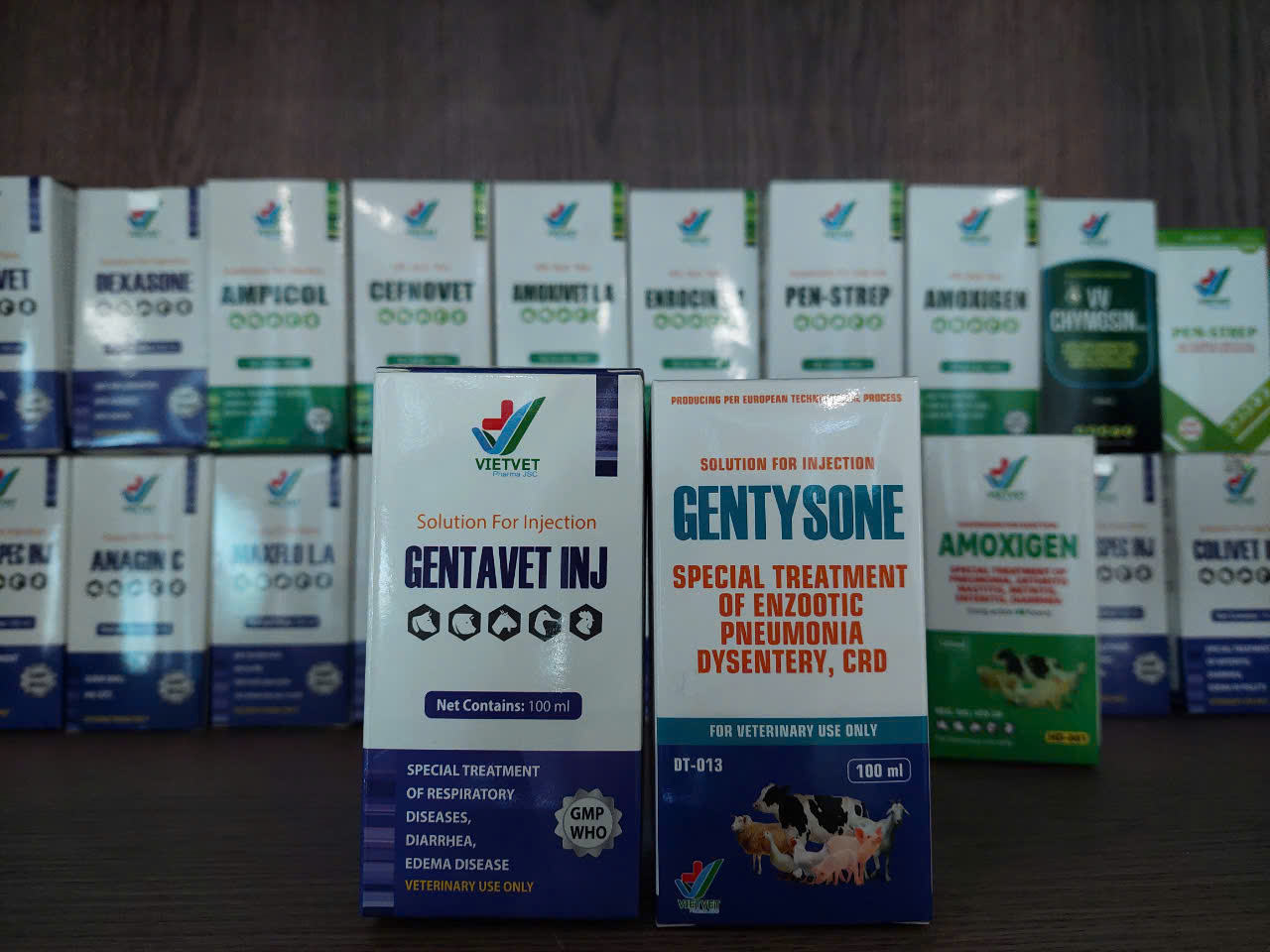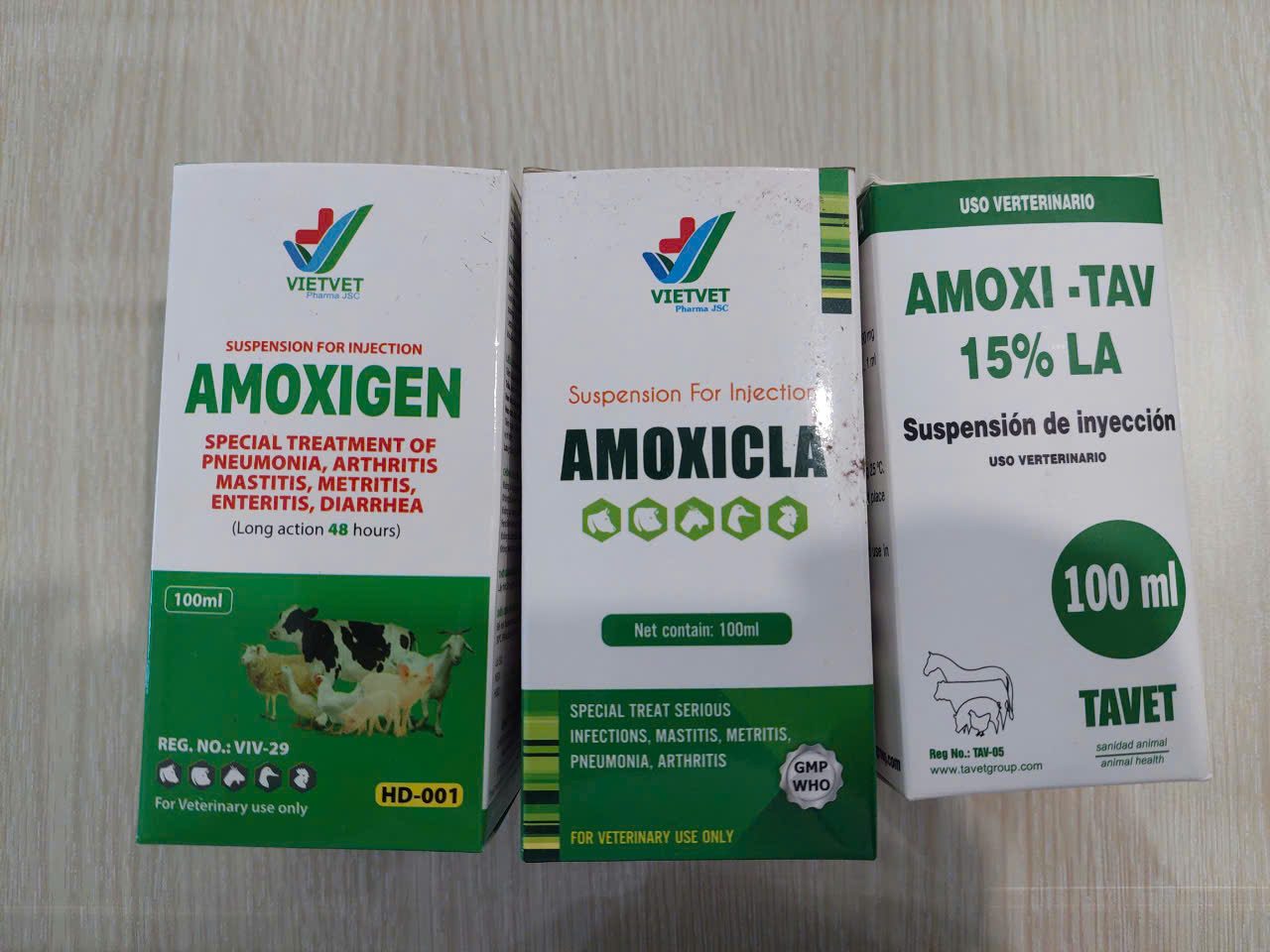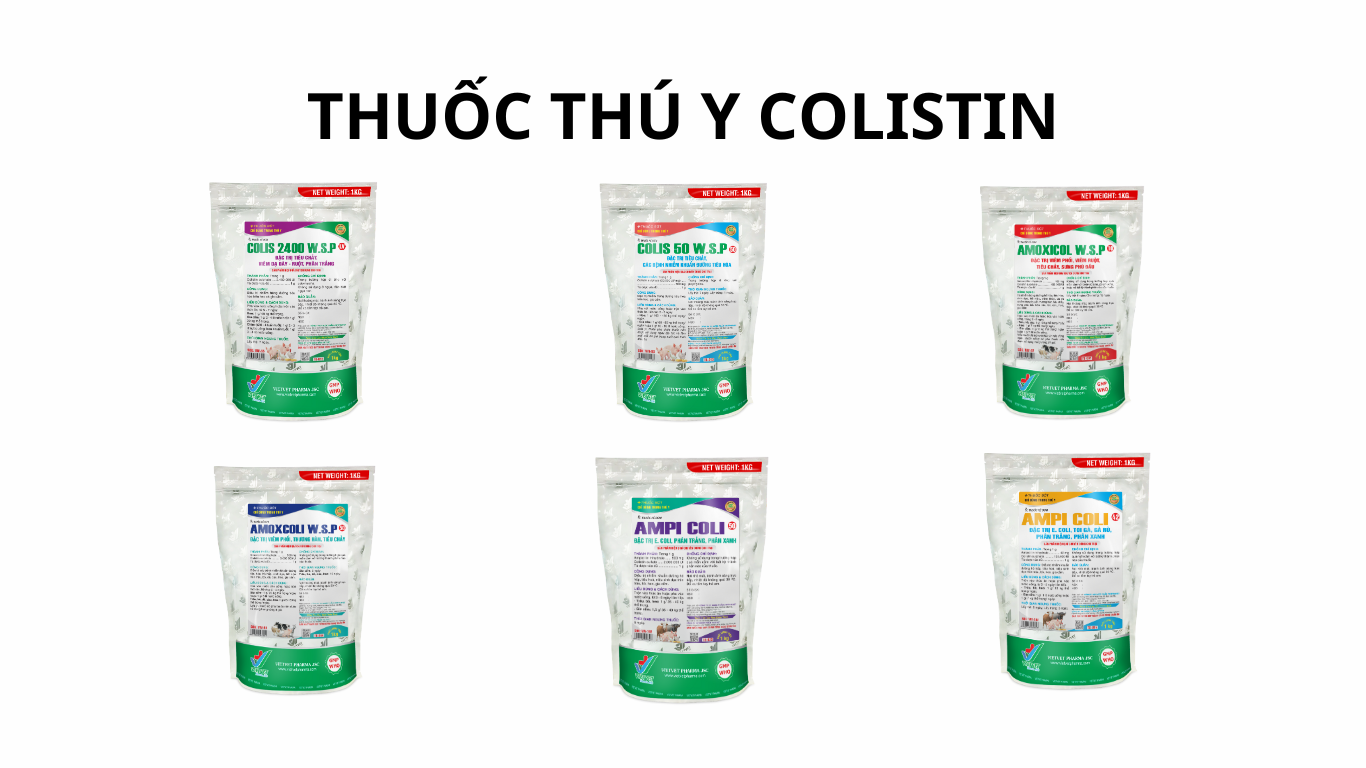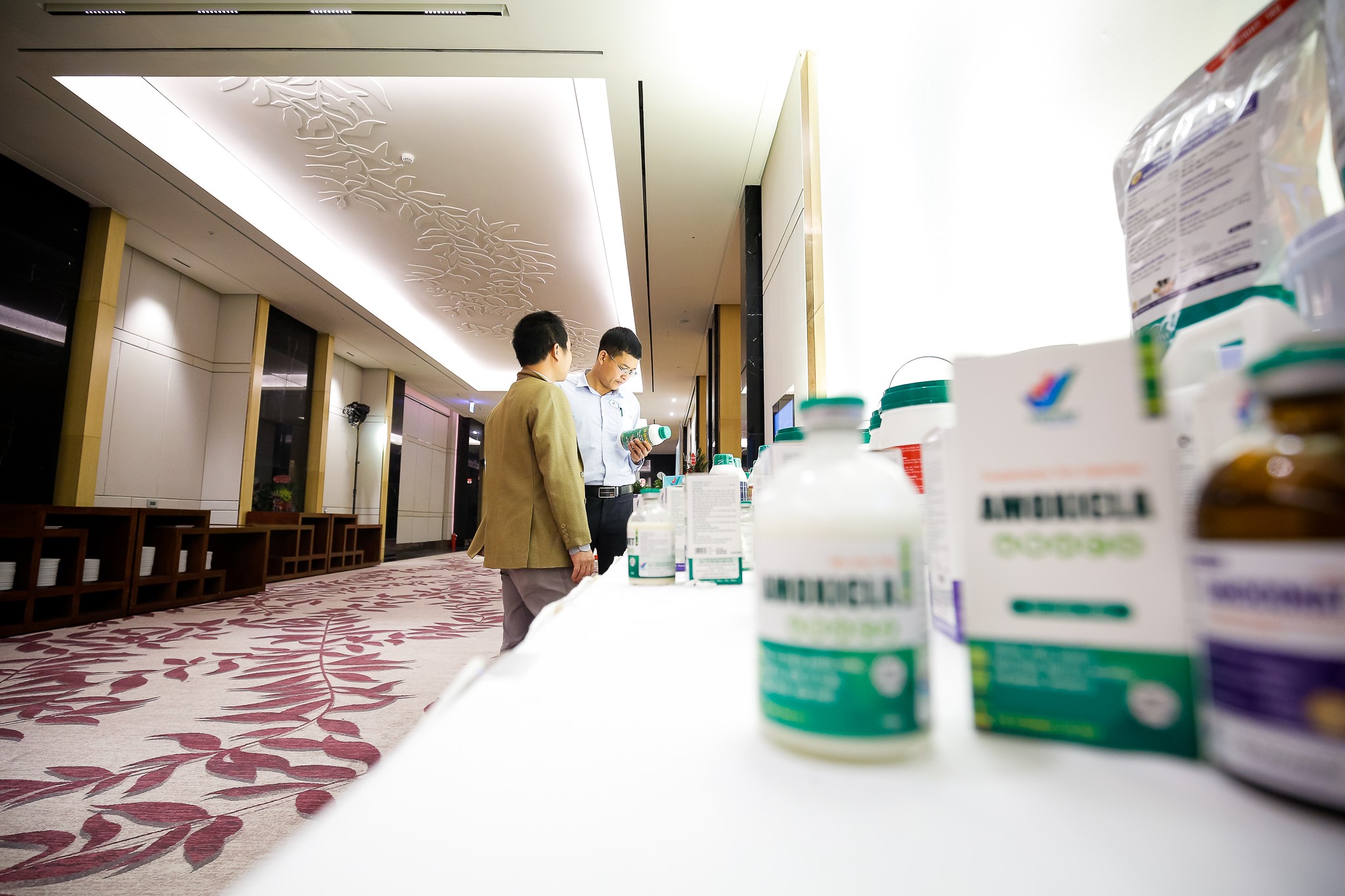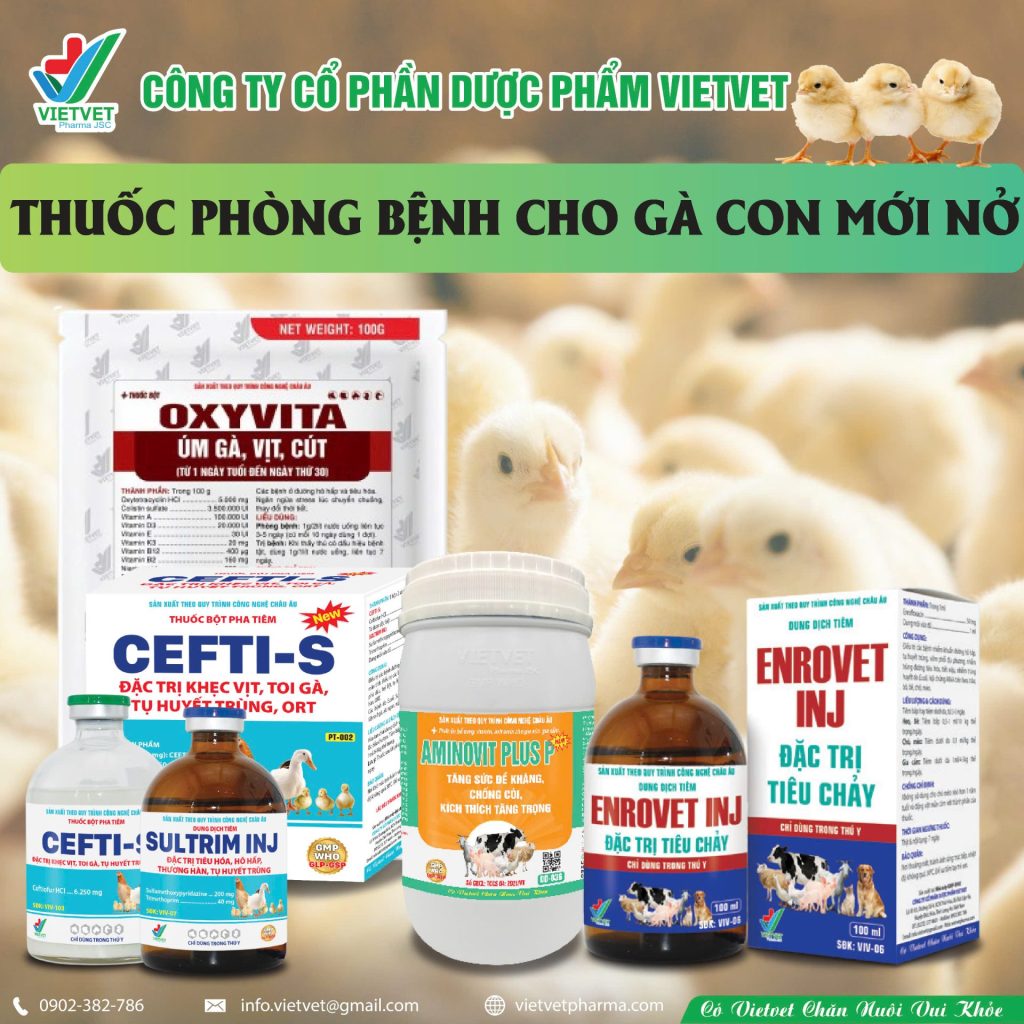
With a weak immune system, chicks are vulnerable to environmental factors and need to be carefully cared for with high-quality disease prevention medicine to protect them from dangerous infectious diseases. Let’s explore what medicine to give newly hatched chicks, common diseases, and the disease prevention medicine for chicks with Vietvet!
1. Common Diseases in Chicks
1.1 Pullorum Disease in Chicks
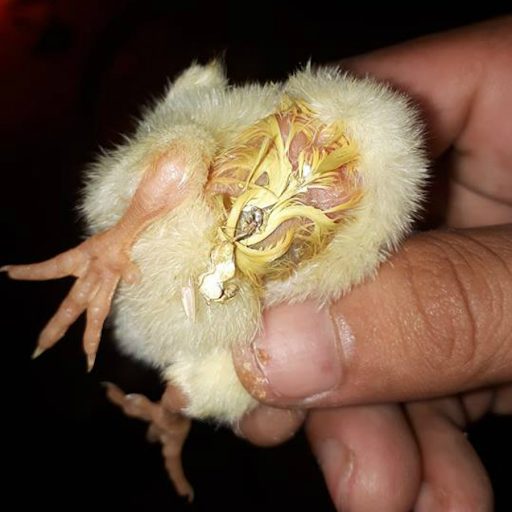
Cause:
Pullorum disease in chicks is caused by the bacteria Salmonella Pullorum. This is a dangerous infectious disease commonly seen in chicks aged 1-10 days and can spread quickly.
Symptoms:
Infected chicks show symptoms such as ruffled feathers, lethargy, dull eyes, poor appetite, and diarrhea.
The feces may be white, and sometimes, the feces may stick to the vent.
Upon detecting the disease, use specialized antibiotics such as Flotyl INJ, CEFTI-S, CS-01, DOXICLIN W.S.P...
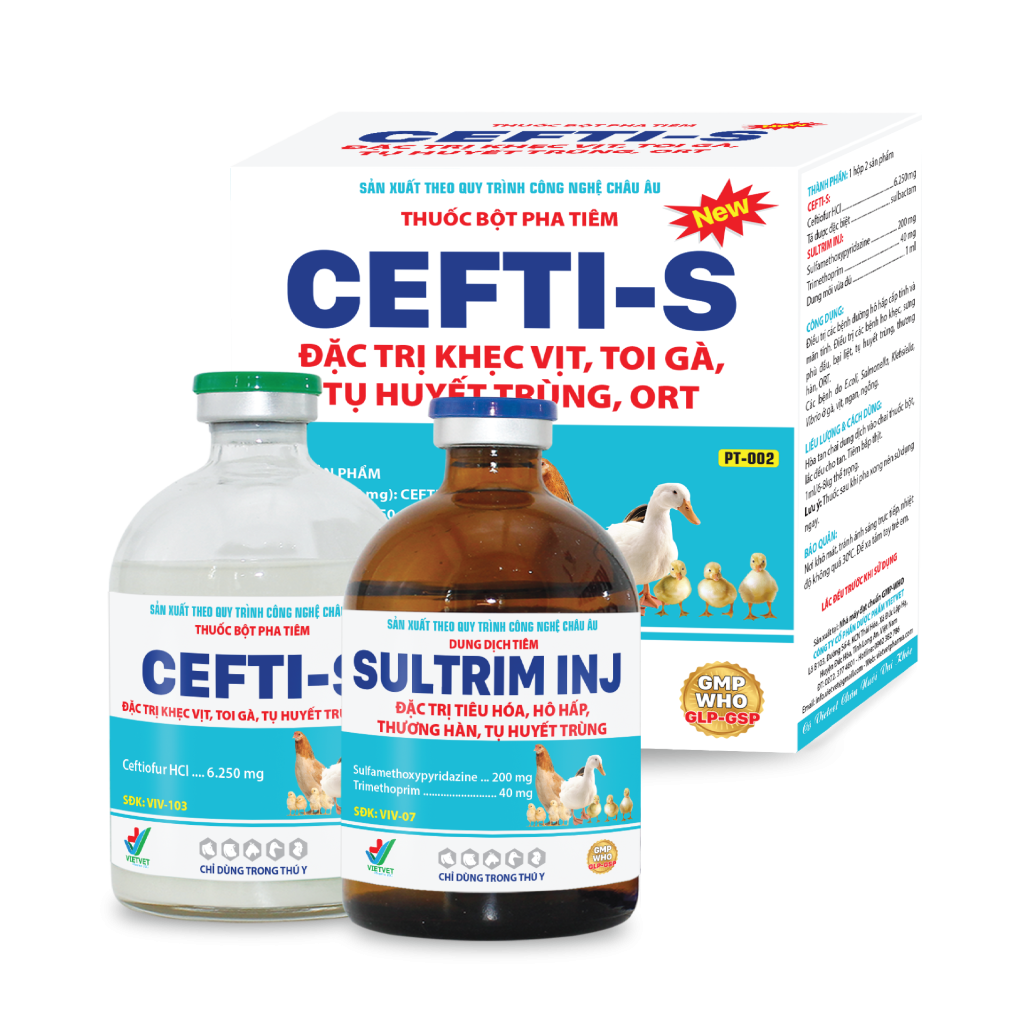
1.2 E. Coli Disease in Chicks
Cause: E. coli disease in chicks is caused by the bacteria Escherichia coli, commonly found in unsanitary environments or feed. This disease usually occurs when hygiene is poor, and chicks are exposed to damp, polluted environments or stress.
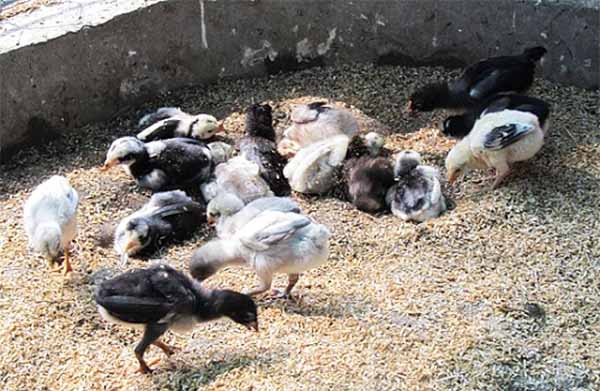
Symptoms: Infected chicks often appear sluggish, eat less, grow slowly, and experience diarrhea.
The feces may be loose and contain white or yellow mucus.
In severe cases, the bacteria may cause peritonitis, air sac inflammation, and lead to death.
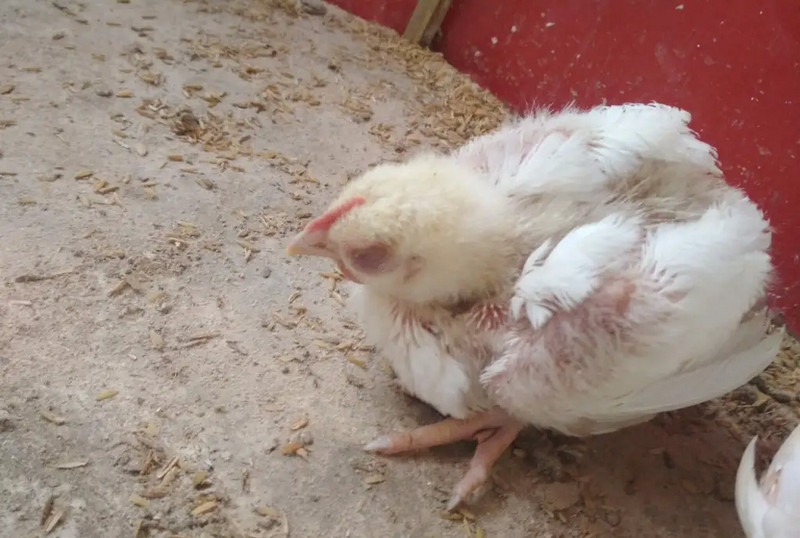
Prevention:
Keep the coop clean, well-ventilated, and ensure proper temperature and humidity.
Provide clean food and sterilized drinking water for the chicks.
Enhance the immune system of chicks by adding vitamins and minerals to their diet.
Vaccinate the chicks as recommended by veterinarians.
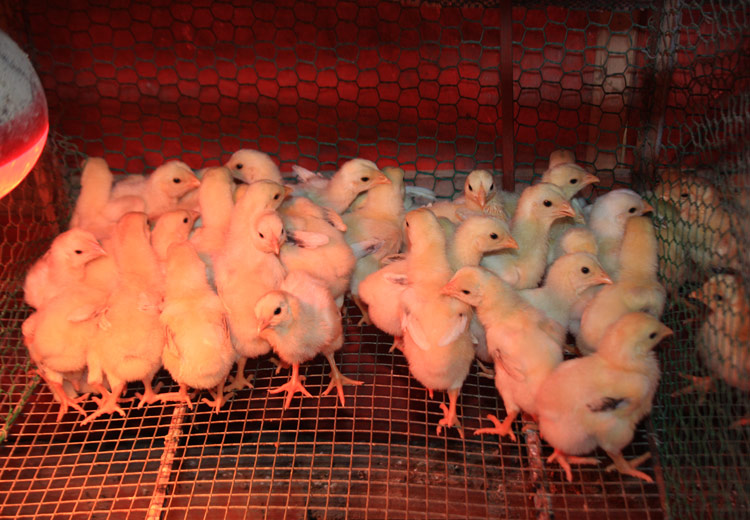
Treatment:
Upon detecting the disease, use antibiotics such as ENROVET INJ, FLOFEN 200 as per veterinary guidance.
It’s essential to isolate infected chicks and regularly disinfect the coop.
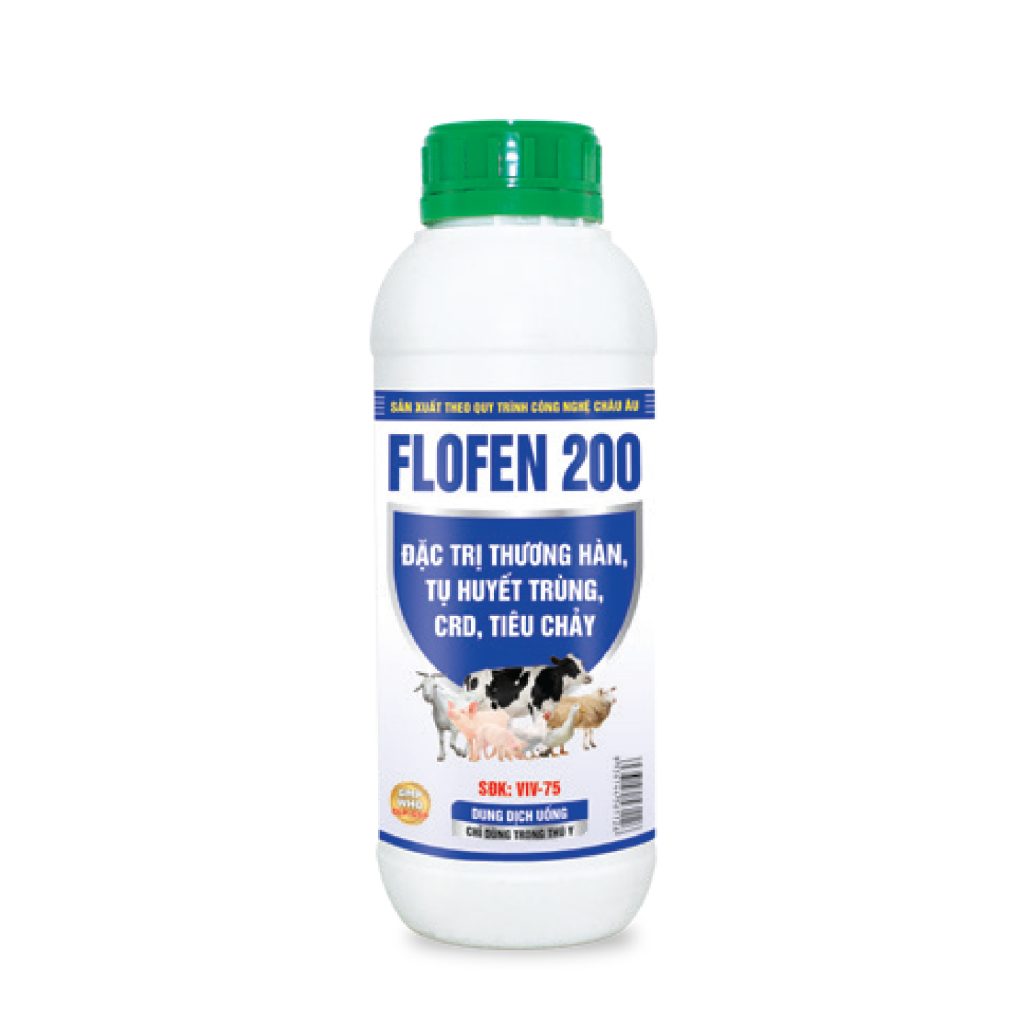
1.3 Dry Feet in Chicks
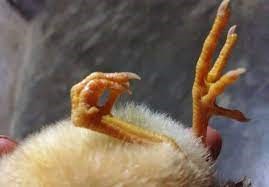
Cause: Dry feet in chicks are often caused by unsuitable living conditions, dehydration, malnutrition, or inappropriate coop temperatures.
When the temperature is too high or too low, chicks cannot absorb enough nutrients and water, leading to dehydration and dry feet.
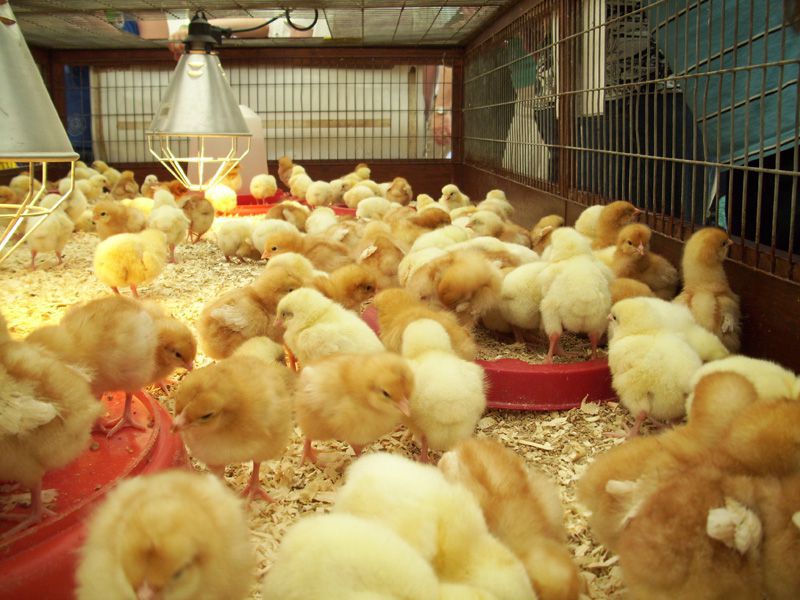
Symptoms: Chicks with dry feet show signs of dehydration, weakness, cracked feet, slow growth, and reduced activity.
They may have poor appetite, lose vitality, and be more susceptible to other diseases.
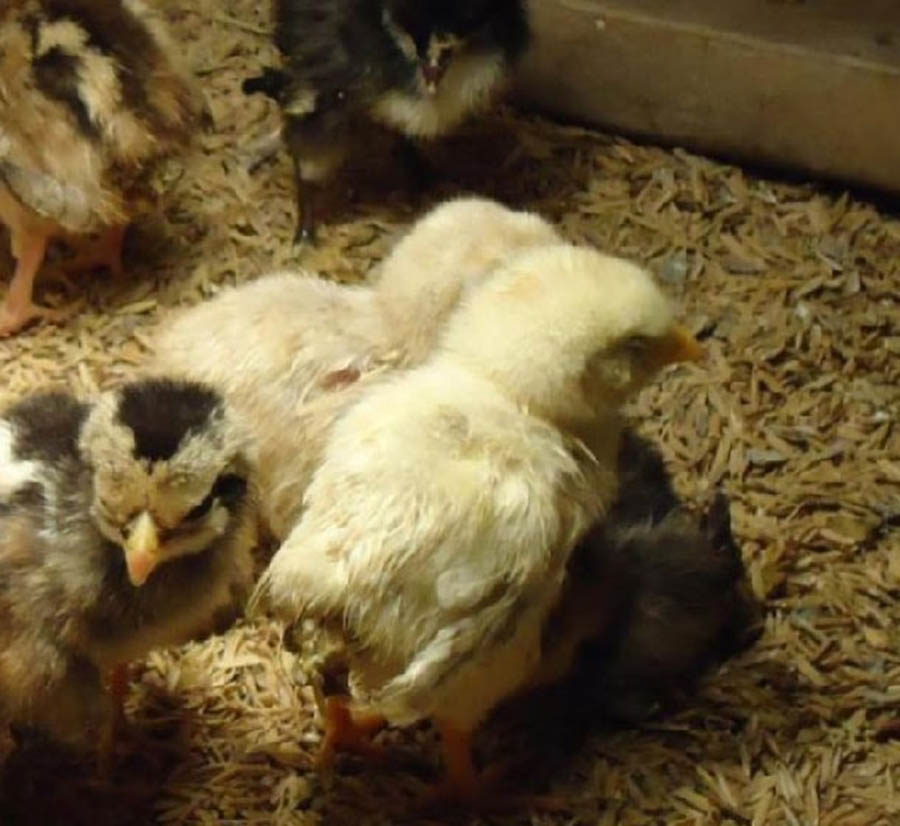
Treatment:
Provide enough clean water and nutrient-rich food for chicks.
Control the coop’s temperature according to the chicks' developmental stages, especially during the first few days after hatching.
Keep the coop clean and avoid overly damp or dry environments.

2. Disease Prevention for 1-Month-Old Chicks
Chicks under one month old have underdeveloped digestive and respiratory systems and weak immunity.
Thus, if care procedures are not followed correctly, or if biosecurity is not ensured, the flock may develop respiratory and digestive diseases.
To ensure healthy development and high survival rates, in addition to selecting quality chicks, farmers must follow recommended methods from experts.
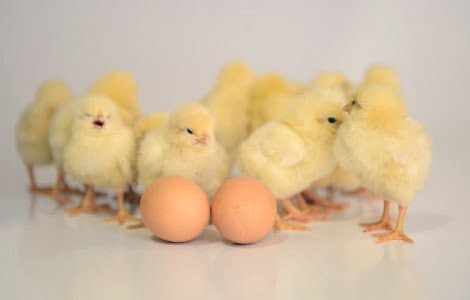
2.1 Effectively Implement Brooding Techniques for Chicks
Depending on specific conditions, you can brood chicks in cages or on the floor (using bedding like rice husks or sawdust); using heat lamps is the best option. The temperature during brooding needs to be adjusted appropriately.
The temperature during brooding needs to be adjusted appropriately.
For the first 2-3 weeks, ensure 24/7 lighting for the chicks, monitor, and adjust the temperature to maintain warmth. Also, apply methods to prevent rodents and cats.
Oxyvita
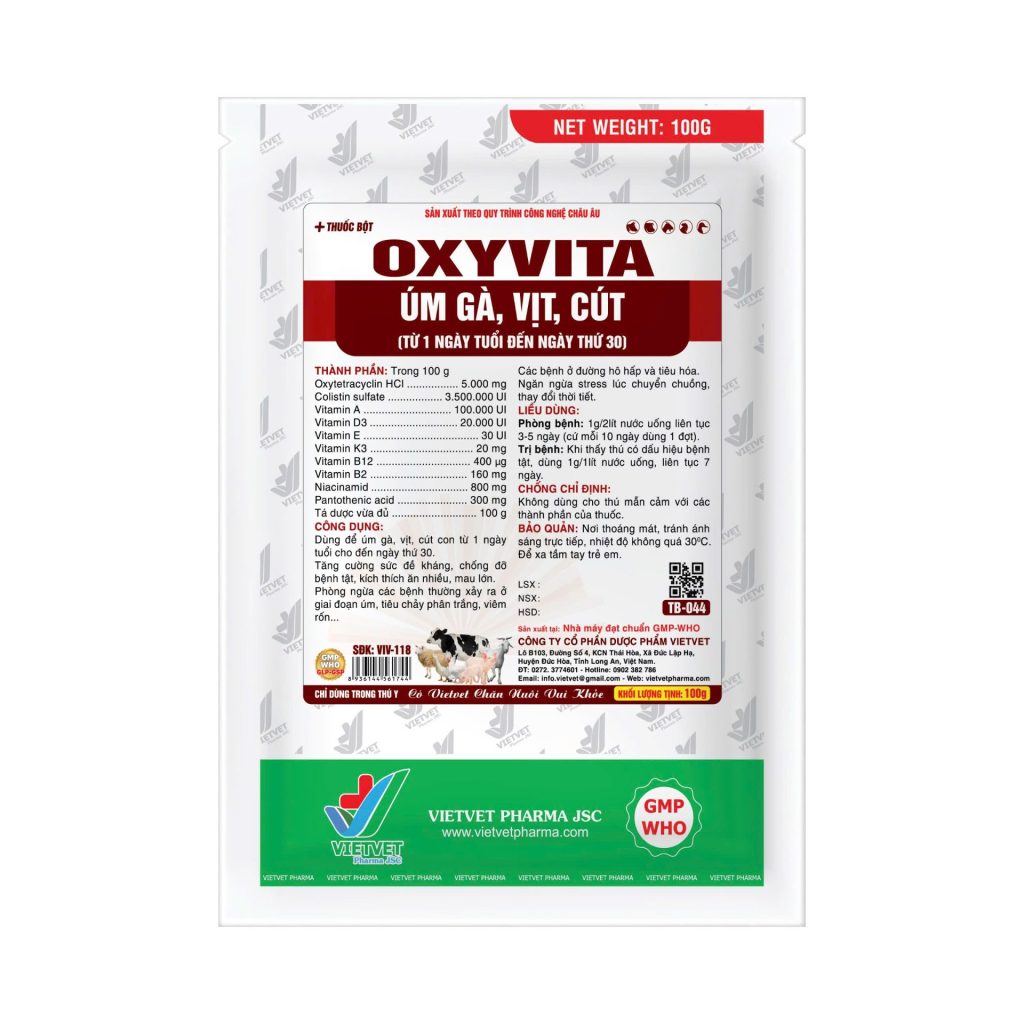
2.2 Selecting Feed for Chicks
Ensure the feed is of high quality and nutritionally sufficient when feeding chicks.
It’s best to use specially formulated or pelletized feed for chicks.
Additionally, feed them small portions several times a day to keep the feed fresh and appealing, stimulating their appetite.
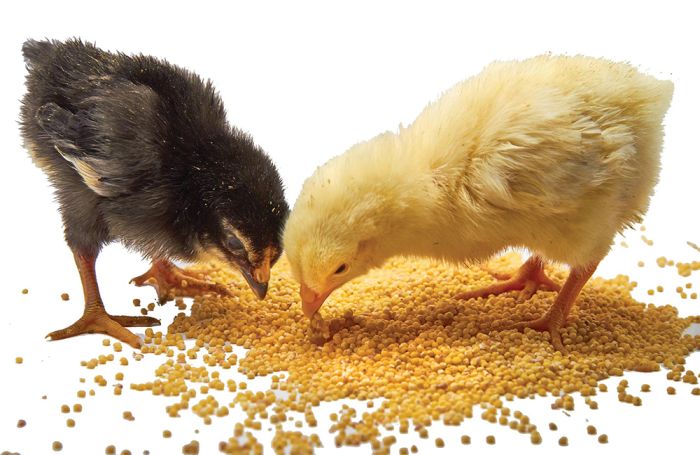
2.3 Water Intake
When receiving new chicks, let them rest for about 10-15 minutes before giving them water.
To reduce stress, dissolve 50 grams of glucose and 1 gram of vitamin C in 3 liters of water
Ensure the chicks drink enough water before feeding. Always provide clean, quality water to support the chicks' health and development.
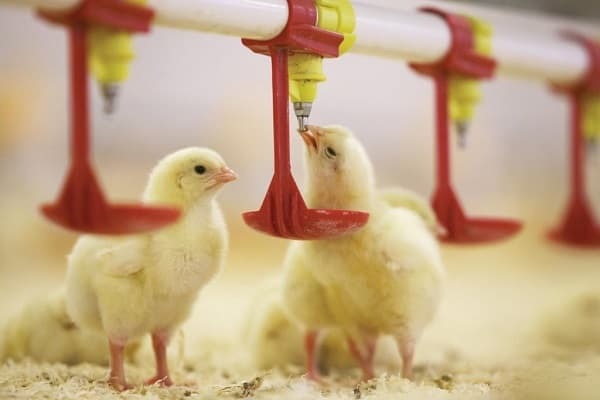
2.4 Disease Prevention
To maintain chick health, keep the coop clean, dry, and well-ventilated.
In summer, ensure a cool environment, and in winter, keep the area warm and draft-free.
Regularly clean and disinfect the coop to reduce disease risks.
Limit visitors in the chicken area and adhere to the vaccination schedule.
Important vaccines to note include fowlpox (administered at 7 days old) and avian influenza (administered at 14 days old).
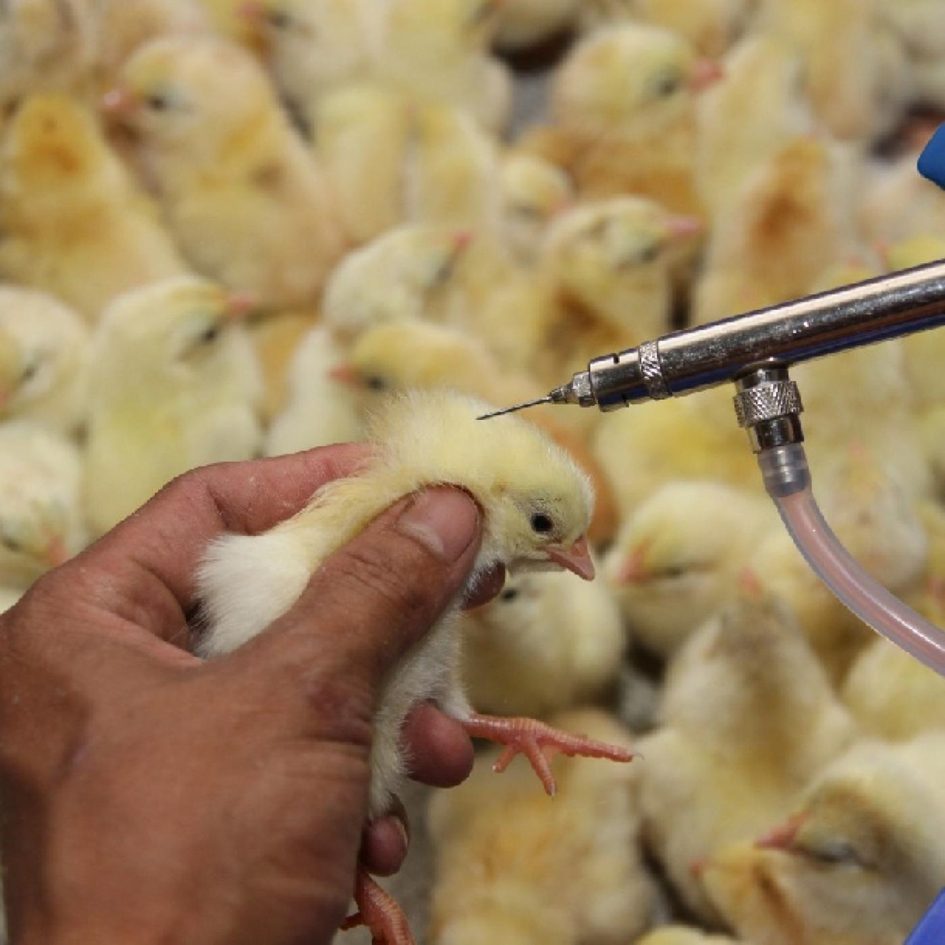
3. Types of Medicine for Chicks
3.1 Brooding Medicine for Chicks and Ducks – OXYVITA
Oxyvita is an effective medicine for disease prevention in newly hatched chicks and is one of the best brooding medicines available.
It effectively prevents bacterial infections during the brooding period, such as navel infections, yolk sac infections, diarrhea, pullorum, and pneumonia.

3.2 METISOL
Boosts immunity, detoxifies the liver, promotes rapid growth, and enhances nutrient absorption, helping chicks grow quickly, develop healthy skin, and gain weight.
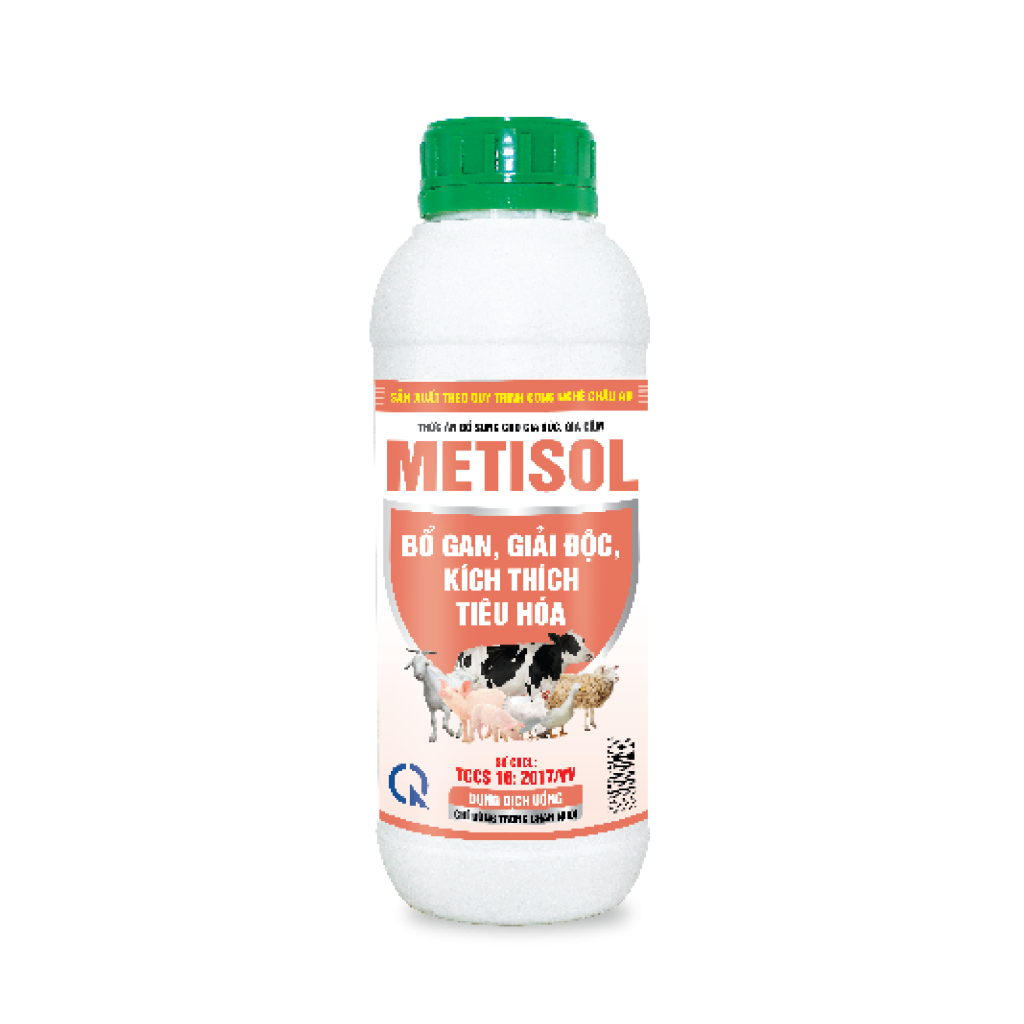
3.3 CALCIUM PHOSPHORUS
Provides vitamins to prevent and treat calcium and phosphorus deficiencies in poultry.
Essential for bone formation, nerve transmission, muscle activity, and blood formation.
Phosphorus is crucial for calcium absorption and maintaining acid-base balance.
Also provides Vitamin C to enhance immunity, reduce stress, and maintain collagen metabolism.
Supplies Vitamin B12 for cell division and blood formation.
Provides Vitamin D3 for calcium-phosphorus absorption and bone development.
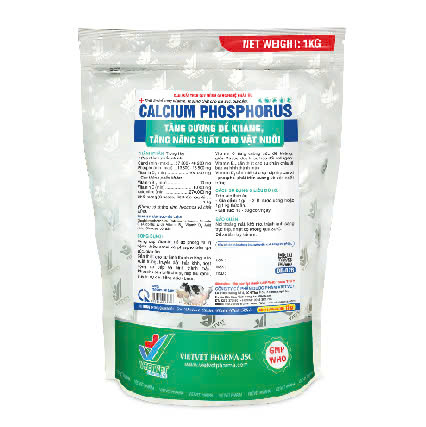
3.4 Antibiotics for Chicks
Một số loại thuốc kháng sinh phòng bệnh cho gàSome antibiotics for disease prevention in chicks include Lincocin 50% W.S.P, Linco-Spec W.S.P...
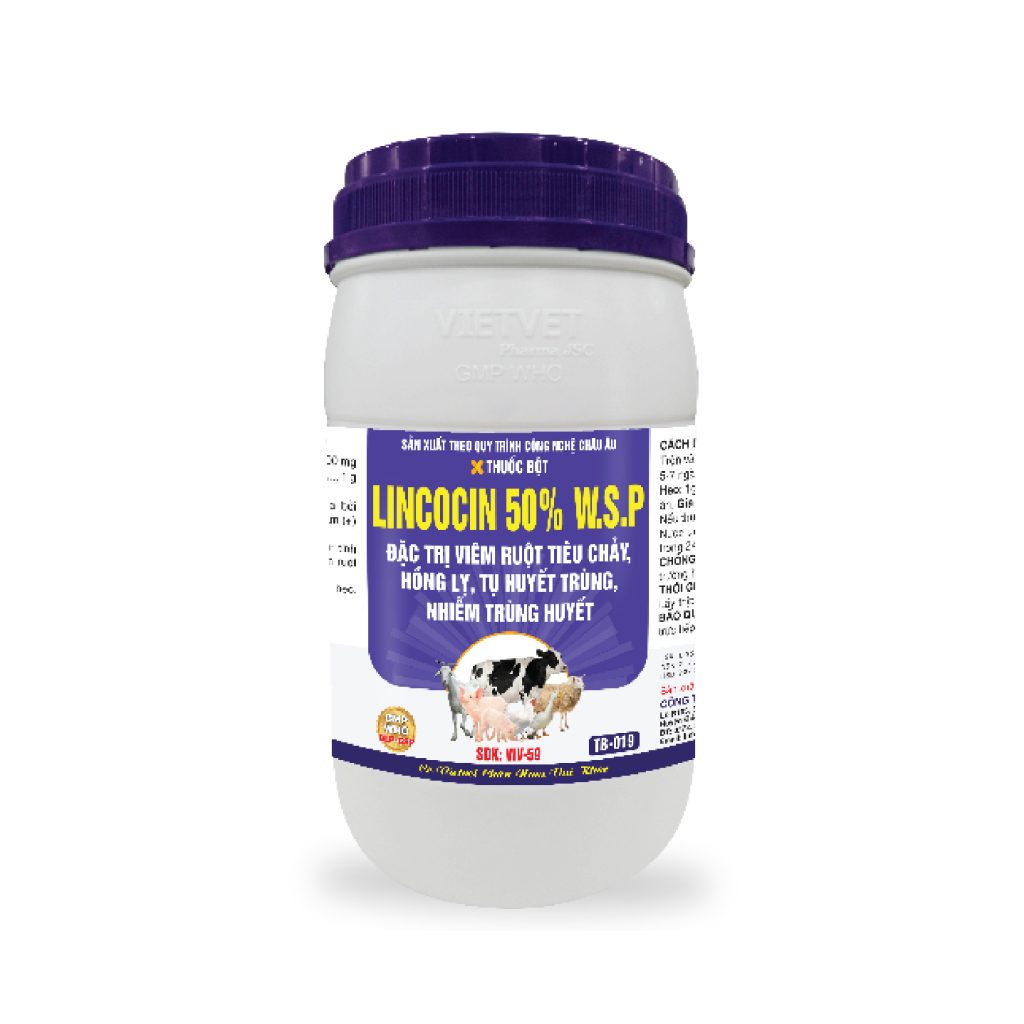
3.5 3.5 Disease Prevention Medicines for Chickens in the Rainy Season
During the rainy season, farmers should supplement chicks with sufficient minerals, vitamins, and digestive enzymes, especially during the brooding stage.
Instructions for disease prevention for chickens during the rainy season
Some supplements include Amino Phosphoric Acid, Beta-Glucan 50, Calcium Phosphorus...
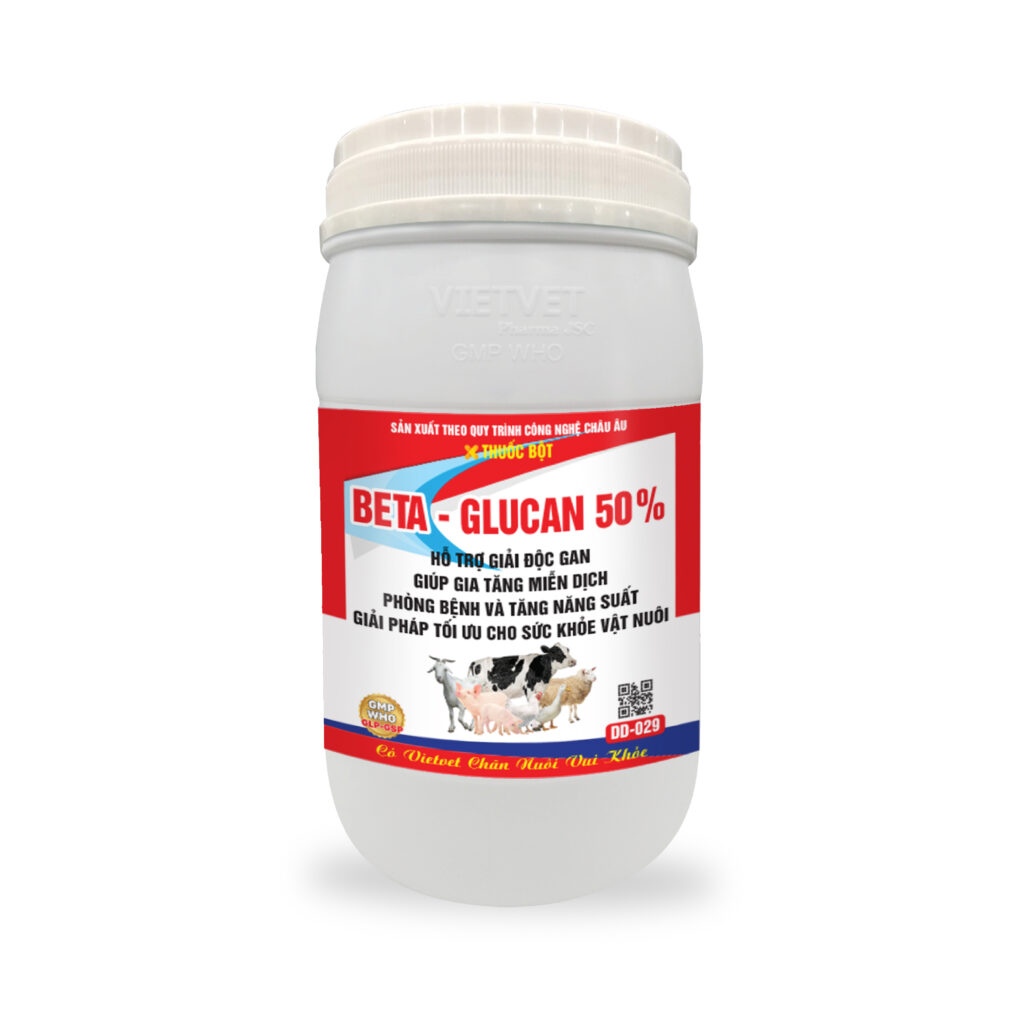
4. Reliable Veterinary Medicine Company for Chickens in Vietnam
Vietvet is proud to be one of the leading companies in Vietnam specializing in providing veterinary medicines for chickens.
With the mission to enhance poultry health and farming quality, we continuously research and develop advanced, effective medicines to meet the increasing needs of farmers.
We are committed to providing high-quality products made from the best ingredients and rigorously tested for safety.
With support from top veterinary experts, Vietvet offers comprehensive healthcare solutions for chickens, from disease prevention to health treatment.
Our focus extends beyond product quality, with significant investments in training and upskilling technicians and farmers.
Our dedication and professionalism have earned us strong trust within Vietnam’s poultry farming community.

Trên đây là tất tần tật và thuốc phòng bệnh cho gà con và một số loại bệnh thường gặp ở gà con. Liên hệ ngay 0902 382 786 For more information or to become a Vietvet veterinary medicine distributor, contact us at 0902 382 786.



